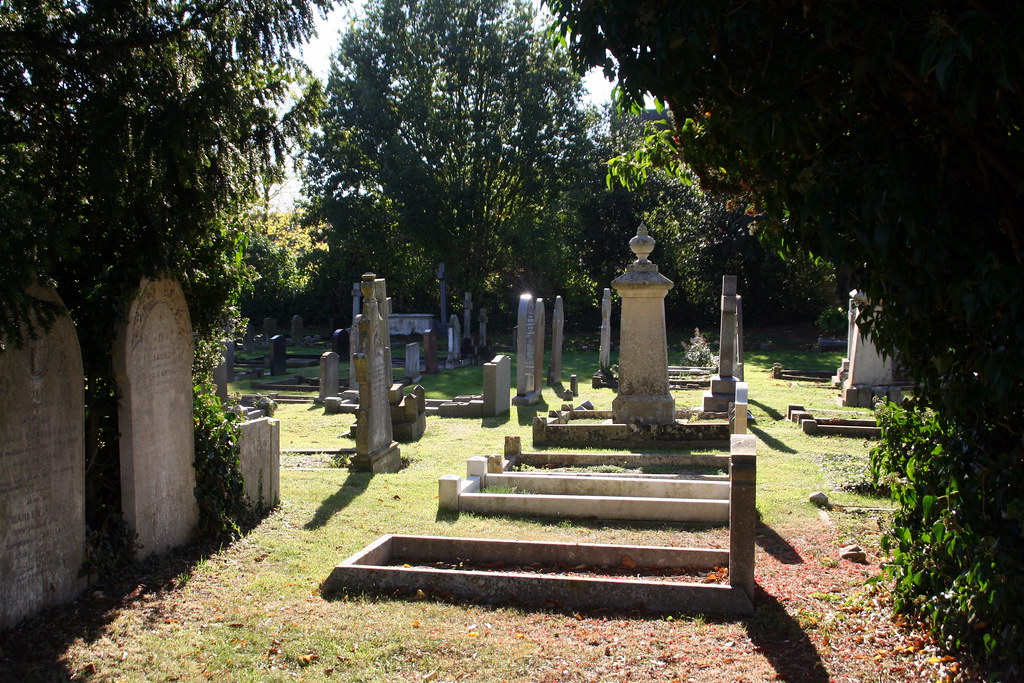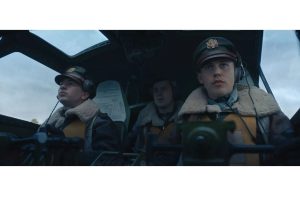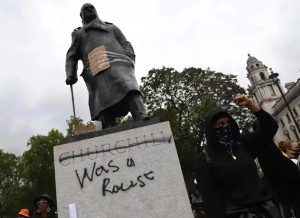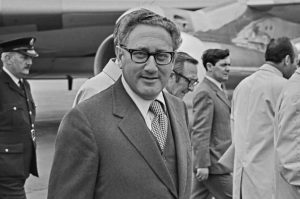After two decades living in the United States, crossing the Pond eastwards always marks a psychological return to my childhood. This time, the feeling was more acute because I was flying back for the funeral of my father. I had said farewell two weeks earlier as he lay in bed, poleaxed by cancer. There had been a peace about him then, an unspoken acceptance of the fast-approaching end. One of the last things he said to me was: ‘Keep on truckin’.’ The phrase, it turns out, goes back to at least 1936 and ‘Truckin’ My Blues Away’ by the blues singer Blind Boy Fuller. Sightless and plying his trade from street corners in the segregated South, Fuller knew how to overcome setbacks. It is a sentiment I shall live by.
I’ve never been good at keeping things together at funerals. While reporting in Thailand on the 2004 tsunami, I helped locate the body of an Essex man who was missing. His sister invited me to the funeral and I wept all the way through the service even though I had never met the deceased. On the day my father was buried, however, I managed to keep it together. In part, that was because we had all been able to say our goodbyes to Dad. It wasn’t ‘closure’ — that awful Americanism — but perspective. We had reminisced, talked about family holidays, dogs, and, dispensing with our Britishness, our feelings for each other. The rest, including the unresolved, just melted away. I was also fortified by the elemental aspects of the rituals. As I shouldered my father’s coffin into the church, my brother and I clasped arms to brace ourselves for the weight. Three old sailors who had joined the Navy with my father in 1960 saluted and my mother, stoic and serene, looked on. Later, we lowered the coffin into a nine-foot-deep hole in the sodden Devon clay, straining our backs as we struggled with the webbing straps. I had used my own physical strength to lay to rest the man who had carried me when I was a child. There was something comforting about the completion of this cycle of life.
My father, an architect, was intensely practical but not always realistic about whether he would complete something, including his own house. At the wake, I looked at the thousands of books, many of them unread, and considered this trait less harshly than I once had. In a sense, this spoke to my father’s optimism. There was always a tomorrow. He was a voracious reader, and there were infinite possibilities within the pages of the volumes stacked on shelves and piled on the upstairs landing and in a shed. The Japanese use the term tsundoku to describe the tendency to acquire books that accumulate unread. Of course, I have inherited it.
Leaving Heathrow, I was bidden farewell by a large cardboard cutout of Garrison Sergeant Major Bill Mott, a now-retired Welsh Guardsman who survived the carnage at Bluff Cove when Argentine jets bombed RFA Sir Galahad in June 1982. I remember his voice breaking as he told me, after the bloody experience of the Welsh Guards in Helmand in 2009, of the suicides in the regiment among Falklands veterans. In 2013, in a disgraceful use of taxpayers’ money, the Ministry of Defence commissioned a study to prove it was not true that more Falklands veterans had died from their own hands than the 255 in the conflict itself. In the small print, the MOD revealed that it had been unable to locate 1,857 out of the 26,000 who had fought in the Falklands, and their statistics hadn’t included veterans from Northern Ireland or those who had emigrated. The study was a shameful attempt to minimize the effects of post-traumatic stress disorder, which is now claiming the lives of Helmand veterans in significant numbers. In January, Lance Sergeant Leon Peek of the Welsh Guards, whose heroism under fire I recounted in my book Dead Men Risen, was buried in Bridgend after taking his own life. His death received no mention in the British press.
Waiting for the plane home, we went to the Wondertree restaurant and were seated at a table surrounded by wooden slats. I remarked that it reminded me of the Vietcong cage in The Deer Hunter in which Robert De Niro and Christopher Walken are forced to play Russian roulette. My girlfriend responded that to her it was more like one of the cages for child migrants apprehended on the US-Mexico border. Either way, the food was pretty good.
I returned to America to find out that this is, after all, a country for old men — and white, straight ones to boot. Bernie Sanders, at 78, two months older than my father, and Joe Biden, a year younger, are duking it out for the Democratic nomination when they should be spending time with their grandchildren. The victor will face President Donald Trump, a spring chicken of 73. None of these men served in Vietnam, a conflict that claimed the lives of 58,000 Americans, not to mention those who have since committed suicide. Sanders applied to be a conscientious objector, while medical deferments were secured by Biden, for asthma, and Trump, for bone spurs. George W. Bush, Dick Cheney, Bill Clinton, Mitt Romney and numerous other American politicians also avoided service in Vietnam. The American political classes revere the military, while British elites tend towards ambivalence. In the US, the epidemic of veteran suicides is treated as a national emergency. But it is an irony that the next American commander in chief will be a man who was able to grow old while contemporaries who died fighting for their country were not.
This article is in The Spectator’s April 2020 US edition.


















